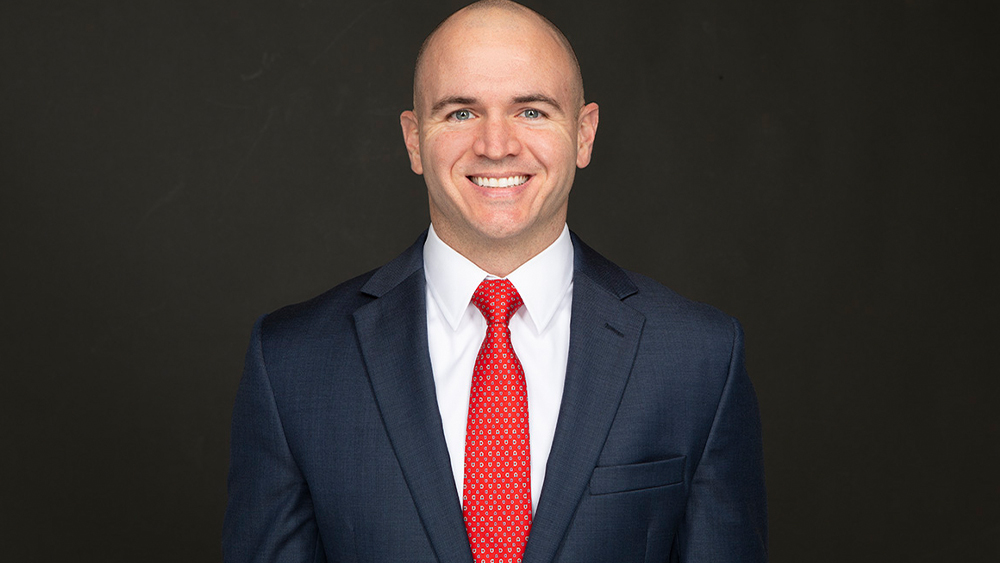
Seven years ago, Andrew Schaper '07 started his own company, Schaper Energy Consulting. To bridge contrasting engineering disciplines and enhance his depth of knowledge in the energy space, Schaper is participating in the Doctor of Engineering program offered by the Department of Multidisciplinary Engineering at Texas A&M University.
"When I entered the doctoral program, the impetus was to expand my narrow focus in petroleum engineering to become more well-versed across the energy landscape," said Schaper. "My objective with the program is to build deep, cross-functional energy domain expertise and be an advocate for solutions to society’s most pressing energy problems."
His diverse background spans multiple engineering disciplines and reflects a varied career in energy and finance. He graduated with an electrical engineering undergraduate degree and obtained a master's degree in petroleum engineering shortly after. Combining his knowledge of the oil and gas industry with finance knowledge obtained through receiving a Master of Business Administration program at The University of Texas at Austin, he worked as a vice president within the Citigroup Energy Investment Banking Division and later as the head of acquisitions and divestitures origination at Bank of America Merrill Lynch.
Schaper’s consulting company, founded in 2014, provides engineering and advisory services to energy projects, with practice areas focused on oil and gas, electric power, sustainable energy (nuclear and renewables) and carbon strategies.
“When I left the financial services industry, I decided to approach the consulting business differently with a focus on long-term partnerships and building an incredible team,” said Schaper. “After starting out I focused exclusively in oil and gas, I had a desire to establish a permanent organization that could address all relevant facets of energy — including those in the ‘sustainable’ space.”
Realizing the benefits in addressing sectors beyond the oil and gas industry, Schaper entered the multidisciplinary engineering department’s Doctor of Engineering program with the expectation of building new knowledge bases in nuclear and renewable technology. The degree is flexible and prepares students for industry leadership and advances their knowledge in emerging technologies. The program has allowed Schaper to take several nuclear engineering classes as well as numerous graduate interdisciplinary engineering courses offered through the Texas A&M Energy Institute’s Graduate Certificate in Energy program.
"The reason I wanted to study nuclear engineering as a core piece of this degree is that I believe it serves a vital role in our energy future," he said. "It's going to require a long-term effort to reposition the way people think about nuclear energy, but I want to play a role in advocating for this key technology and highlighting its advancements."
The curriculum of the Doctor of Engineering was developed to directly apply to a person's specific academic and occupational needs. Schaper noticed this overlap, as course topics often align with client mandates.
"I have projects in the consulting practice that were initiated through or bolstered directly by the courses that I'm taking," said Schaper. "The classes I am taking are directly applicable as I pursue these topics commercially and professionally."
Furthermore, he is participating in an internship with the International Trade Administration, helping to enhance the export of United States civil nuclear technology. A key piece of this work is providing support to the U.S. civil nuclear industry in its quest to commercialize small modular reactor technology at home and abroad.
As he strives toward his doctoral degree, he reflects on the opportunities and resources Texas A&M makes available for its students.
"I think Texas A&M can be the leading energy university," said Schaper. "I am hopeful that the program I chose is the catalyst for a much more refined initiative addressing energy engineering. There's no other institution positioned to do what Texas A&M can, which is to harness a desire to learn about energy and engineering."
In the future, Schaper would like to share his knowledge with students. A long-term goal is to join the Doctor of Engineering program in a different capacity as a professor specializing in industry insights in various engineering and energy fields.